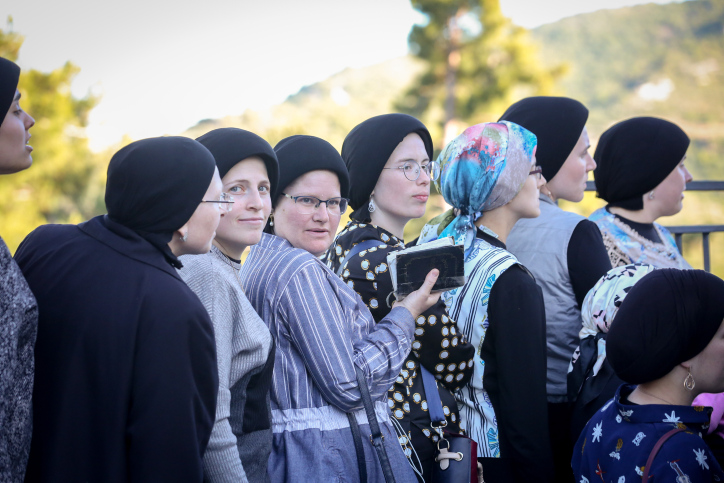
New research - Published on the 'Mako' website - Discovered that compared to secular people, the ultra-Orthodox are happier.
This study, conducted by Dr. Pninit Russo-Netzer of the Achva Academic College and the University of Haifa, Dr. Tamar Itzhakson of the Peres Academic Center and Ben-Gurion University, and doctoral student Aya Zeiger of Tel Aviv University, joins a series of studies, in Israel and around the world, that repeatedly demonstrate that the lives of observant people have a positive impact on the overall experience of happiness in life.
The CBS happiness index also placed the ultra-Orthodox cities of Beit Shemesh and Bnei Brak at the top of the list (along with Kfar Saba), with the overwhelming majority of residents in these cities testifying that they are satisfied with their lives. 'Mako' notes that a special CBS publication from 2016, titled 'Profile of the Happy Person,' examined the connection between states of happiness and the degree of religiosity, and according to the results, 62% of the ultra-Orthodox define themselves as "very satisfied with their lives" - compared to only 26% among the secular.
Why do ultra-Orthodox people really report higher levels of life satisfaction, even though their standard of living falls significantly below that of secular people?
Previous studies have indicated that a sense of meaning, belonging, and social support contribute to the happiness levels of Haredim. The new study points to two additional mechanisms that may explain the differences in happiness levels between secular and Haredim.
The study focused on the contribution of gratitude and optimism to explaining cross-cultural differences.
Observant communities cultivate a lifestyle based on regular rituals of gratitude (such as the "I thank you before you" prayer that opens the day or the "Asher Yitzer" blessing after going to the bathroom). Gratitude is defined as a worldview that focuses on recognizing, appreciating, and appreciating the good in life.
The new study found that Haredim report higher levels of gratitude, which explains the fact that they are happier, beyond the levels of optimism, which were found to be identical between secular and Haredim.
Another interesting finding was that optimism "contributed" more to gratitude among secular people compared to the ultra-Orthodox, meaning that optimism may "immunize" secular people and contribute to their levels of happiness, by increasing their levels of gratitude.
This study joins previous studies that found that men and women with higher levels of optimism tend to pay more attention to positive stimuli in the environment, and are less likely to pay attention to and be distracted by negative and threatening information.
This positive tendency contributes to the individual's ability to be focused on the positive aspects of events and experiences and to experience more feelings of gratitude in everyday life.
According to the researchers, cultivating an optimistic worldview may encourage gratitude and therefore contribute particularly to the happiness levels of secular people, compared to the ultra-Orthodox.